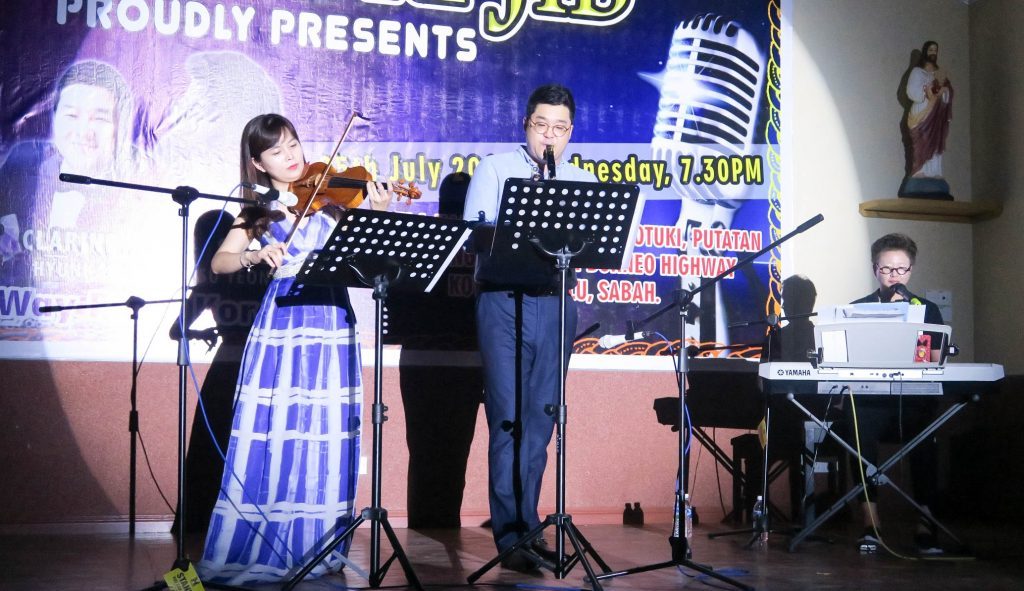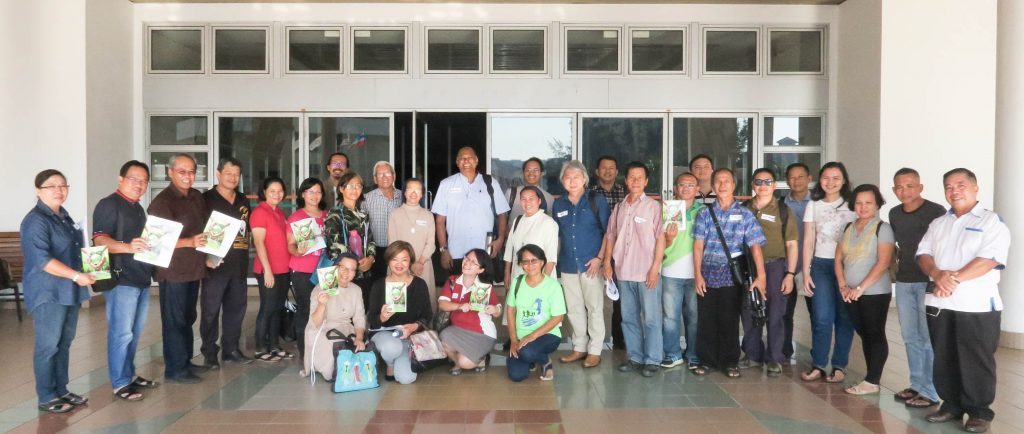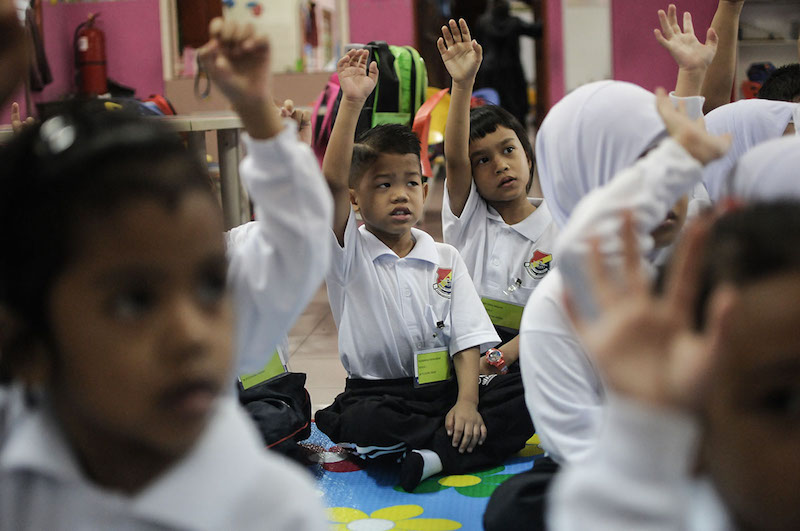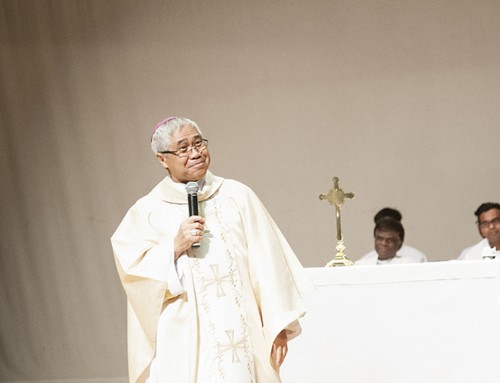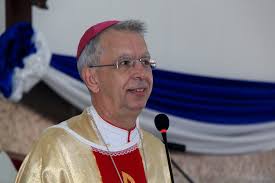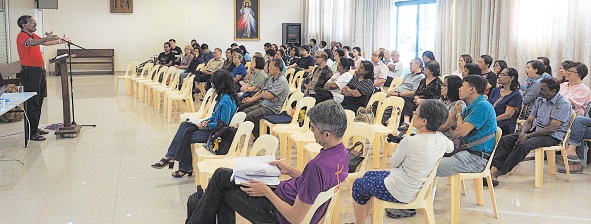You must be wondering what is going on in the minds and hearts of the Archbishop and his priests with regard to the revelation in August 2018 that some 300 priests had sexually abused over a thousand minors in Pennsylvania over the last 70 years.
Like you, we are shocked and dismayed at the severity and extent of the abuse described. Some of the clergy implicated operated at the highest echelons of power in the US church. We feel extremely sad that those young people have been hurt, and are suffering even now, the effects of the trauma of being abused by the very people who were entrusted to protect and to shepherd their souls. As clergy, we feel terribly ashamed and betrayed by the evil and selfish acts of our brother priests who slaked their lust on the young and vulnerable children placed under their care, stripping them of their innocence. We are even more scandalized to read that some Church leaders deepened the pain by snuffing out evidence and shielding their subordinates.
We are as bewildered as you with regard to the many diverse and conflicting reports on the sex abuse of minors in the United States. We are in no position to judge the merits of the various allegations. We have to depend on those responsible to seek out the truth so that justice can be done. It is best at this stage not to speculate but to wait for the events to unfold, as the gospel says, “For there is nothing hidden that will not be disclosed, and nothing concealed that will not be known or brought out into the open.” (Lk 8:17) Let us trust that good and sincere leaders of the Church are searching for the truth and will get the answers for us.
Our hearts grieve at the deplorable state of the Church’s affairs. With the growing number of revelations and scathing reports from the media, we cannot but begin to doubt our Church leaders. The faith of the People of God has been greatly shaken. Some have left the Church. Many who have embraced the faith against all odds wonder if they have made the right decision.Yet others who are on the fringe are now convinced that this is not where they want to be. Those whose faith is not strong are ashamed to be associated with the Church. This is understandable, because the credibility of the Church’s leadership has been greatly affected. The entire Church is suffering because of the wolves who have infiltrated the Church in sheep skin.
Nevertheless, we must also recognize that there is much goodness in the Church founded by Christ. Of the more than 400,000 priests in the world, the great majority have striven to be faithful to their calling, and to live good and holy lives.They have given their lives in service to the people of God generously and humbly, attending to the sick, burying our loved ones, counselling the wounded, praying for us, leading us in worship and instructing us in our faith.They are there when we need help and support most.Sadly, they have been tarred with the same brush by the world, shouldering the blame for the failures of their fellow priests, just like those who are unjustly implicated when their spouse commits a crime. We must be careful not to throw the baby out with the bathwater. More than ever, with all the negative reports, our faithful must stand up and show their support for the good priests they have encountered in their lives. As human beings, we priests need your encouragement and support. We also feel ashamed and disheartened at the state of affairs.
The scandals abroad are a wake-up call for us, as the Catholic Church in Singapore has not been spared allegations of child abuse.Over the years, a handful of cases have been brought to our attention. These were handed over to the Professional Standards Office (PSO) of the Archdiocese for investigation. Thus far, all the cases have been judged to be inconclusive by the PSO, and confirmed by the Congregation for the Doctrine of the Faith in Rome.
As Archbishop, I want to assure you that,to the best of my knowledge, there has been no cover-up in our archdiocese. The PSO, set up by my predecessor in 2011,and subsequently enhanced during my tenure as Archbishop,is the instrument by which the Church deals with sex abuse complaints. Staffed by lay professionals, its investigations are conducted at arm’s length from the Archbishop. This is to ensure total impartiality and non-interference from the Archbishop’s Office.
Any allegations of abuse must now also be reported to the police when the PSO takes up the case. This is to discourage falsified or exaggerated claims which malign the innocent, as the pain of being questioned and living under suspicion while waiting for judgement to be pronounced can be as traumatic for these priests as it is for those who have truly been abused.
Since prevention is better than cure, the Archdiocese has also put in place systems and processes to protect the People of God by reducing the risk of sexual abuse.The PSO has already issued guidelines for the creation of a safe environment in our parishes and organisations, and will soon announce how they are to be enhanced. All priests, religious and workers employed by the archdiocese must declare that they have not been convicted of any sex offences. Those with known records will not be allowed to work in ministry or mingle with the vulnerable. Soon, all seminarians and novices who want to join priestly or religious life will not only have to sign this declaration but they would be subjected to more stringent psychological tests and background checks. There is a need also to ensure that our Church volunteers, especially those dealing with children, are vetted and cleared of sexual crimes against children. I seek the understanding of Church volunteers why such a step is necessary. I would like to appeal to those who are lawyers, doctors, psychiatrists, and counsellors to offer their service to the PSO.
Finally, every scandal is also a stepping stone for growth. The Church is undergoing testing and purification.The exposure of such crimes is good for the Church in the long run. It purifies the Church, ensures the highest integrity of our Church leaders, and helps them to be more discerning in accepting Church workers or candidates to the priesthood and religious life. Guided by the Holy Spirit, we will come out of this crisis stronger. In the meantime, I appeal to you to pray for the victims and for the Church; for Pope Francis and the leaders of the Church to have wisdom and to find courage to take the necessary actions to rectify the abuses and prevent future incidents. We need your prayers and mortifications. Please pray for me, your archbishop, for wisdom, courage and strength. Pray for your priests, religious and Church workers to walk the way of truth and holiness. I encourage all parishes to organise Holy Hour and prayer vigils to pray for healing and unity in the Church. More than ever, we need to pray for God’s forgiveness for the evil that we have allowed into the sanctuary of His Church, for the pain and suffering of her wounded children, for the divisiveness that these scandals have brought to the Church, and for abandoning Jesus Christ who never abandons us even in our darkest hour.
I invite you to join me in a day of Fast, celebration of Holy Mass and Holy Hour for the healing and purification of the Church in holiness on the Feast of the Triumph of the Holy Cross:
- Date & Time: Friday, 14 September, 2018, 6.30pm
- Venue: Cathedral of the Good Shepherd
Let us take heed of the advice of St Paul. “Finally, be strong in the Lord and in the strength of his power. Put on the whole armour of God, so that you may be able to stand against the wiles of the devil. For our struggle is not against enemies of blood and flesh, but against the rulers, against the authorities, against the cosmic powers of this present darkness, against the spiritual forces of evil in the heavenly places. Therefore take up the whole armour of God, so that you may be able to withstand on that evil day, and having done everything, to stand firm. Stand therefore, and fasten the belt of truth around your waist, and put on the breastplate of righteousness. As shoes for your feet put on whatever will make you ready to proclaim the gospel of peace. With all of these, take the shield of faith, with which you will be able to quench all the flaming arrows of the evil one. Take the helmet of salvation, and the sword of the Spirit, which is the word of God. Pray in the Spirit at all times in every prayer and supplication. To that end keep alert and always persevere in supplication for all the saints.” (Eph 6:10-18)
United in love and prayers for the healing of the Church,
Most Rev. William Goh
Archbishop of Singapore
1 September, 2018
Article reproduced from Herald Malaysia online


